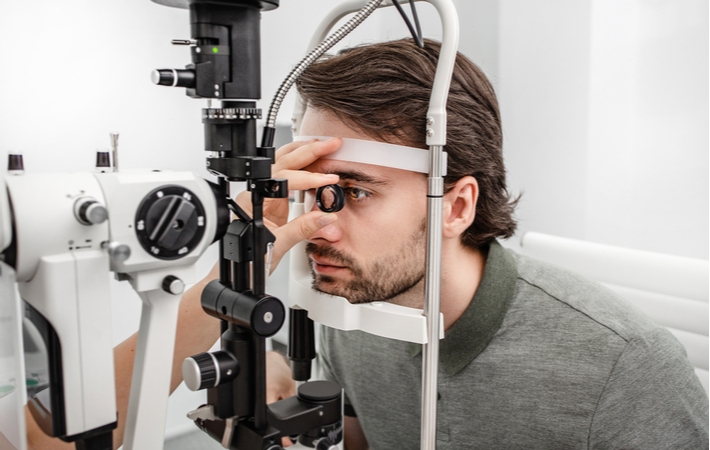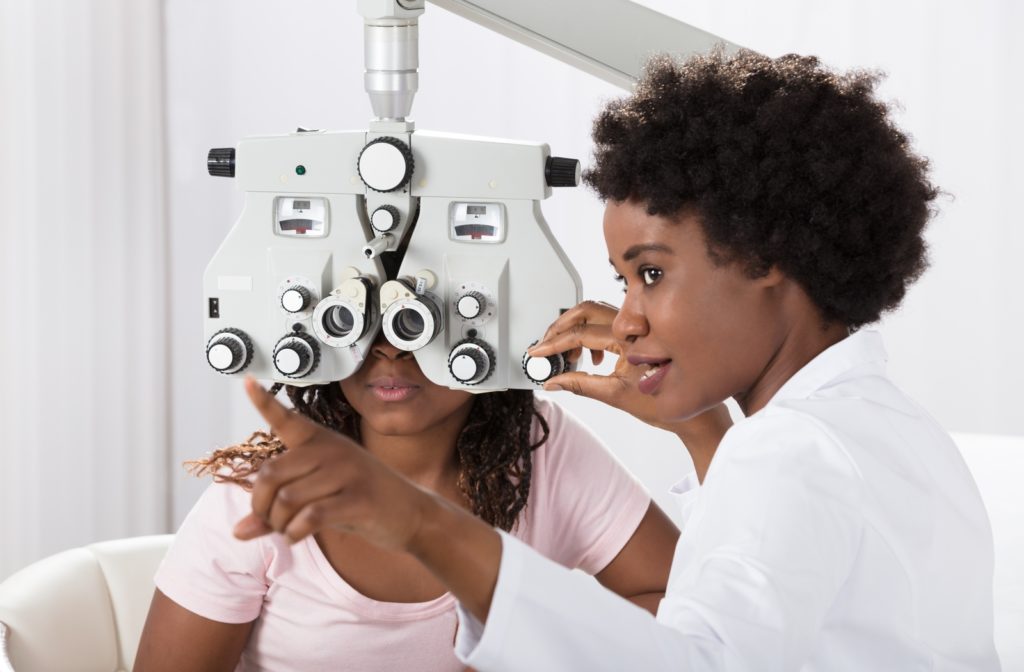Everyone needs regular eye exams, whether it’s children or adults. You’ve likely had an eye exam before, but maybe it’s been a while since your last appointment. What happens during these examinations, and why are they important?
Continue reading to learn more about the importance of comprehensive eye exams.
What Is a Comprehensive Eye Exam?
A comprehensive eye exam consists of several different tests your optometrist uses to assess your vision and eye health. These tests can determine if you’re experiencing visual issues or eye disease.
An eye exam consists of more than a vision test—your optometrist looks at your eye as a whole. After completing your eye examination and reviewing their findings, your eye doctor can recommend a treatment plan to address your needs.
Treatment may include eyeglasses or contact lenses, or solutions for managing eye disease, depending on your needs.
While eye exams can be beneficial, why do you need regular visits with your optometrist? Why are eye exams important?
Why Are Eye Exams Important?
Regular eye examinations are necessary for several reasons. Eye exams can help your optometrist protect your eyes from various eye diseases that affect your vision and health.
Many eye diseases show few if any symptoms until they begin affecting your vision. The only way to identify these problems is during a comprehensive eye exam. Your optometrist has several diagnostic tools they can use to diagnose any issues before they harm your eyes and vision.
Some common eye problems include:
Early detection of eye disease is crucial for protecting your vision. The earlier your eye doctor diagnoses a condition, the sooner treatment can begin, increasing your chance of recovery and preventing further damage to your eyes.
Regularly scheduled eye examinations help your optometrist track any changes in your vision or eye health, which can identify early signs of eye disease. During your eye exam, what kind of tests should you expect?

What Should You Expect During a Comprehensive Eye Exam?
You may not realize you have any issues, so your optometrist must conduct several tests to check for signs of eye disease. These tests will determine your visual clarity, overall eye health and look for diseases and other problems.
Your optometrist has access to many different tests, and you may not experience every one of them. Your current health and medical history will help determine the tests best suited for you.
Your eye exam is likely to include the following:
Patient History
The start of your eye exam typically begins with patient history, including a discussion of the current eye or vision problems you’re facing. Your optometrist will ask questions about current medications, your work and home conditions, and your previous medical history, including your family history.
Visual Acuity & Refractive Assessment
A visual acuity test helps determine how clear your vision is. You likely know this test if you’ve ever experienced the famous eye chart. How well you can see from near and far can determine if you have a refractive error.
Afterward, a refractive assessment helps to identify the required prescription needed to correct your vision problem. Your eye doctor will use a phoropter during this test.
Slit-lamp Examination
A slit-lamp examination helps determine your overall eye health. The microscope’s bright light helps your optometrist see your entire eye, including the eyelids, eyelashes, sclera, cornea, and lens. When your eye doctor dilates your eyes with special drops, they can examine your retina and optic nerve in detail.
Glaucoma Testing
Glaucoma can develop without any visible symptoms until later stages, so testing for this condition is critical during an eye exam. A common symptom of some forms of glaucoma is an increase in intraocular pressure (IOP).
Your optometrist will use a test known as tonometry to test your IOP. If your IOP is high, it may mean you have glaucoma.
Retinal Imaging
Your optometrist will take detailed photos of the back of your eye during retinal imaging. The retina is responsible for helping you see, but issues affecting the retina can develop, such as retinal detachment, macular degeneration, or diabetic retinopathy.
The tests your optometrist conducts during a comprehensive eye exam are critical for diagnosing any potential issues and protecting your ocular health. Eye exams are important no matter your age, but how often do you need one?
How Often Do You Need an Eye Exam?
Your examination frequency depends on your eye condition, but adults under 64 should have an exam every 2 years. Patients over 65 should see their optometrist annually. An annual exam is ideal for everyone, but some people may require shorter times between appointments.
Is It Time for an Eye Exam?
Annual exams for most people are recommended to help protect your ocular health and vision. If you need an examination, book an appointment today.



